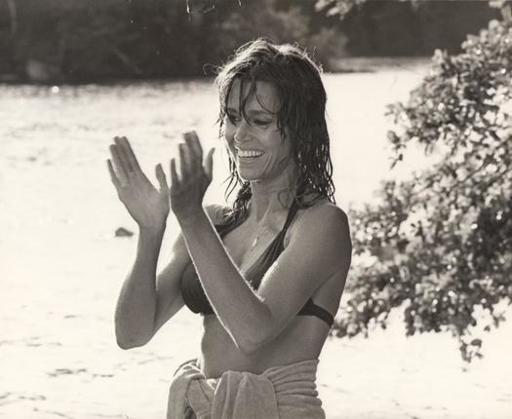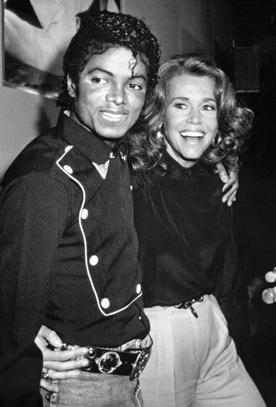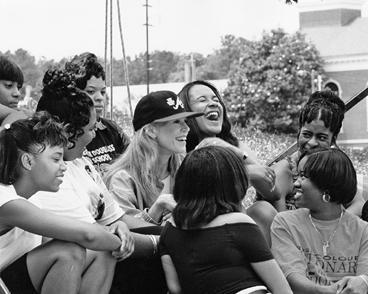Prime Time (41 page)
Authors: Jane Fonda
Tags: #Aging, #Gerontology, #Motion Picture Actors and Actresses - United States, #Social Science, #Rejuvenation, #Aging - Prevention, #Aging - Psychological Aspects, #Motion Picture Actors and Actresses, #General, #Personal Memoirs, #Jane - Health, #Self-Help, #Biography & Autobiography, #Personal Growth, #Fonda

For me, the word conjures up the notions of generation, generating, and creativity: Our generation must generate (with creativity) caring and nurturance for things and people other than ourselves. We must become advocates for the future.
There’s lots in it for us, too, including physiological benefits. It has been shown that endorphins that strengthen the immune system and increase our longevity are released when we are fully engaged in “broadening our social radius” by helping others, especially the younger generations—and this is what Generativity means.
Dr. George Vaillant, in his book
Aging Well,
based on the thirty-year-long Harvard Study of Adult Development, writes that in all the groups that were studied, “mastery of Generativity tripled the chances that the decade of the 70s would be for these men and women a time of joy and not of despair.” Surprisingly and deliciously, the study also revealed—as I said in the Preface—that among the women, “mastering Generativity … was the best predictor of whether they reported attaining regular orgasm”!
4
In
Man’s Search for Meaning
Viktor Frankl wrote, “Mental health is based on a certain degree of tension, the tension between what one has already achieved and what one still ought to accomplish, or the gap between what one is and what one should become.” I like the metaphor Frankl uses to illustrate why the tension of striving, even in the elderly, is positive: “If architects want to strengthen a decrepit arch, they
increase
the load which is laid upon it, for thereby the parts are joined more firmly together.”
I think one reason Katharine Hepburn remained strong into her advanced age was because, like an old arch, she assumed the load of the elder. When we worked together on
On Golden Pond,
she very deliberately took me under her wing, using every opportunity to pass on her wisdom. She let me know she’d been watching as I overcame my fear of doing a backflip for the film and said that mastering something you fear is what keeps you from getting “soggy” in life.
One day while we were having tea together, Hepburn told me how she would get up every morning at five to write about her life’s experiences. One chapter, she said, was called “Failure.” “You know, Jane,” she remarked, “we learn far more from failure than we ever do from success.”
Katharine Hepburn, Dad, and me on the set of
On Golden Pond.
AFP/GETTY IMAGES
On Golden Pond
KEYSTONE/HULTON ARCHIVE/GETTY IMAGES
She made me understand the value of self-consciousness. We tend to think of self-consciousness as something bad—as being awkward or uncomfortable with oneself. But the way Hepburn made me see it was more as a
consciousness of self,
an awareness of how our presence affects people. “This is your package,” she said to me once, pinching my cheek. “We all have our package, what presents us to the world. What do you want your package to say about you?”
RON GALELLA/WIRE IMAGE
My late friend the singer Michael Jackson spent several days visiting the set and watching Katharine and my father act. In between scenes, Hepburn would make a point of having Michael pull up a chair next to her so she could tell him stories. One of them was about Laurette Taylor, one of the great American theater actresses. Katharine had seen Taylor early in her career, when she had been “absolutely brilliant” in Tennessee Williams’s
The Glass Menagerie.
A number of years later, when Taylor had become famous, Katharine saw her again in that role. “The magic was gone,” said Hepburn, watching Michael to see if he was paying attention. “She’d become too successful. Lost the hunger. Sad, sad, sad.” It was an important lesson for a rising star, which Michael was at the time. Hepburn never hammered me over the head with her wisdom. She simply layered it into our daily contacts in ways that made me think and feel challenged.
Speaking at Harvard in 2000.
I work with teenagers, through my nonprofit organization in Georgia, the Georgia Campaign for Adolescent Pregnancy Prevention. When I am with them, I try always to remember what my friend and mentor in the field of youth development, Dr. Michael Carrera, says: “Young people may forget what you say or what you do. But they will never forget how you made them feel.” Helping the young feel worthy, loved, challenged, and hopeful is what will make them strong and resilient. And more often than not, what they need is for us to listen, really listen—with our hearts, countenancing them with our eyes, not tuning out while we figure out what to say back to them.
These are the footprints we want to leave behind, ones they can step into confidently as they move through midlife and into their own Third Acts.
In Santa Monica, California, I discovered a real hub of Generativity at WISE & Healthy Aging. The center has been around since 1976 and has gained a national reputation for its innovative programs for seniors, especially its Peer Counseling Program, where volunteers become trained paraprofessionals, supervised by a licensed therapist. I talked to a seventy-one-year-old woman who was a retired lawyer. She told me, “I found that after law, I needed to utilize a different part of my brain, and volunteering here provides that opportunity. I meet people that I probably would never meet in day-to-day life, and the problems that they face are sometimes extremely difficult—insurmountable health problems, financial problems, problems with their children. I feel very gratified in thinking that in some way I can improve the quality of their lives, and I feel the quality of my life has been improved substantially as a result of the training here and my involvement with the group.”
An elderly widower told me he had been suffering from depression when a friend urged him to come to the center and volunteer. “Depression isn’t contagious, you know,” the friend had told him. “It works the other way.” “He was right,” the man said cheerily. “When I started volunteering I got over the depression. It’s a whole new life.”
The men and women volunteers, all seniors themselves, have been able to replace the lost social networks they had at work or through marriage with a new network that includes their clients and their fellow counselors.
A retired school psychologist loves her work as a volunteer. “I had all that background and thought I should use it for something,” she told me, adding that the greatest part for her are the new relationships she’s formed with the people she works with. “It’s just so wonderful. We’re not just chatting; we have such meaningful exchanges.”
Lois has been a counselor at the center for twenty-two years and believes that this is what she always wanted to do. “I was very busy my whole life helping my husband with his real estate business,” she said. “I had no choice. I felt obligated to my husband. So this was like getting a second chance at a new life.”
I met Jake, who volunteers with the center’s Friendly Visitor Program and brought with him his ninety-five-year-old client Karl, who lives in a nursing home and can’t get around on his own anymore. Karl has bonded with Jake. Karl is the man I quoted earlier who, when I asked how old he was, replied with the playful humor that seems so characteristic of the very old: “I don’t know how old I am, but I was around when the Dead Sea was only sick.” I hated to think what life would be like for Karl if he didn’t have Jake to talk to. “We see eye to eye on so many subjects—politics, humor,” says Karl of Jake.
Evelyn Freeman, the beautiful ninety-one-year-old founder of the Peer Counseling Program, says, “If I were going to look for one word that describes what goes on here with the counselors and the clients, the word would be ‘joy.’ The joy of being productive. The joy of doing something meaningful. The joy of knowing that you can enlarge your life at a time when many people think it gets smaller. The joy of knowing that each of us has the potential for change for as long as we live.”
Another wise woman practitioner of Generativity is my friend Dr. Johnnetta Cole, about whom I wrote in
Chapter 13
. A vibrant woman, Johnnetta said her Third Act well-being has to do with her sense of purpose and her active engagement with living. “Let me tell you about my fiftieth reunion at Oberlin College. I’m very close to one of my former roommates, Chitie Edgett, and her husband, Dick. Well, Sister Jane,” she said in her characteristic style, “there were a few folk at our reunion who, whether in wheelchairs or not, seemed to have lost eye contact with living. But I’m happy to say that the majority of my classmates were clearly moving through life in a very different way. What was the difference? Despite the health challenges that Chitie, Dick, and I, along with many of our classmates have, we are not only looking at life straight on, we are busily trying to find enough hours in each day to do what we must do and what we want to do. I am really convinced that this Third Act can be at its best when we are truly engaged in something we are passionate about. I know that the more engaged I am intellectually and involved in causes that I care about, the better this Third Act is going to be. Of course, we have to acknowledge our infirmities and the physical expressions of growing older. I chuckle when I recall hearing Maya Angelou say that at a certain point in her life a woman can watch a race between her two breasts to see which one is going to drop the quickest. Having a sense of humor about how the natural process of aging is expressed on one’s body helps to keep fun and joy in the process of becoming a seasoned citizen.”





